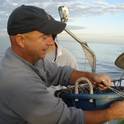- behavior,
- life history,
- seamounts and ridges,
- hydrothermal vents,
- collaborative effort,
- trait-based approaches,
- animal morphology,
- Marine Protected Areas
Trait-based approaches that complement taxonomy-based studies have increased in popularity among the scientific community over the last decades. The collection of biological and ecological characteristics of species (i.e., traits) provides insight into species and ecosystem vulnerability to environmental and anthropogenic changes, as well as ecosystem functioning. Here, we present the FUN Azores trait database, describe our approach, evaluate its scope, compare it to other marine trait databases, and explore the spatial distribution of its traits with “functional maps.” While most of the available trait databases to date contain essential information to understand the functional diversity of a taxonomic or functional group, our ecosystem-based approach provides a comprehensive assessment of diverse fauna (i.e., meio-, macro-, and megafauna) from benthic and pelagic environments in the Azores Marine Park; including ridges, seamounts, hydrothermal vents, and the overlying water column. We used a collaborative approach involving 30 researchers with different expertise to develop the FUN Azores database, which contains compiled data on 14 traits representing morphological, behavioral, and life history characteristics for 1,210 species across 10 phyla. The “functional maps” show a distinct distribution of the two most common size classes, suggesting different communities with different functionalities. The following traits had the best scoring coverage (i.e., >95% of OPEN ACCESS EDITED BY Peter Convey, British Antarctic Survey (BAS), United Kingdom REVIEWED BY Sarah Faulwetter, University of Patras, Greece Kai Horst George, Senckenberg am Meer Wilhelmshaven, Germany *CORRESPONDENCE Neus Campanyà-Llovet neus.ci.llovet@uac.pt RECEIVED 21 September 2022 ACCEPTED 29 May 2023 PUBLISHED 27 July 2023 CITATION Campanyà-Llovet N, Bates AE, Cuvelier D, Giacomello E, Catarino D, Gooday AJ, Berning B, Figuerola B, Malaquias MAE, Moura CJ, Xavier JR, Sutton TT, Fauconnet L, Ramalho SP, Neves BdM, Machado GM, Horton T, Gebruk AV, Minin K, Bried J, Molodtsova T, Silva MA, Dilman A, Kremenetskaia A, Costa EFS, Clarke J, Martins HR, Pham CK, Carreiro-Silva M and Colaço A (2023) FUN Azores: a FUNctional trait database for the meio-, macro-, and megafauna from the Azores Marine Park (Mid-Atlantic Ridge). Front. Ecol. Evol. 11:1050268. doi: 10.3389/fevo.2023.1050268 COPYRIGHT © 2023 Campanyà-Llovet, Bates, Cuvelier, Giacomello, Catarino, Gooday, Berning, Figuerola, Malaquias, Moura, Xavier, Sutton, Fauconnet, Ramalho, Neves, Machado, Horton, Gebruk, Minin, Bried, Molodtsova, Silva, Dilman, Kremenetskaia, Costa, Clarke, Martins, Pham, Carreiro-Silva and Colaço. This is an open-access article distributed under the terms of the Creative Commons Attribution License (CC BY). The use, distribution or reproduction in other forums is permitted, provided the original author(s) and the copyright owner(s) are credited and that the original publication in this journal is cited, in accordance with accepted academic practice. No use, distribution or reproduction is permitted which does not comply with these terms. TYPE Data Report PUBLISHED 27 July 2023 DOI 10.3389/fevo.2023.1050268 Campanyà-Llovet et al. 10.3389/fevo.2023.1050268 Frontiers in Ecology and Evolution 02 frontiersin.org the species scored): maximum body size, body form, skeleton material, feeding structure, motility, environmental position, substratum affinity, distribution, and depth range; while traits related to species behavior (e.g., sociability or aggregation tendencies) and life history (e.g., developmental mechanism) had lower scoring coverage, highlighting the need for further research to fill these knowledge gaps. We found a larger number of species in the benthic compared to the pelagic environment and differing species composition between areas within the Azores Marine Park resulting from varying biodiversity, ecosystem types, sampling effort, and methodologies used. The FUN Azores database will foster and facilitate trait-based approaches in the area, develop a framework for expansion of cross-ecosystem and cross-taxa trait databases elsewhere, and improve our ecological understanding of the Azores Marine Park and its conservation requirements.
Available at: http://works.bepress.com/tracey-sutton/301/

© 2023 Campanyà-Llovet, Bates, Cuvelier, Giacomello, Catarino, Gooday, Berning, Figuerola, Malaquias, Moura, Xavier, Sutton, Fauconnet, Ramalho, Neves, Machado, Horton, Gebruk, Minin, Bried, Molodtsova, Silva, Dilman, Kremenetskaia, Costa, Clarke, Martins, Pham, Carreiro-Silva and Colaço. This is an open-access article distributed under the terms of the Creative Commons Attribution License (CC BY). The use, distribution or reproduction in other forums is permitted, provided the original author(s) and the copyright owner(s) are credited and that the original publication in this journal is cited, in accordance with accepted academic practice. No use, distribution or reproduction is permitted which does not comply with these terms.